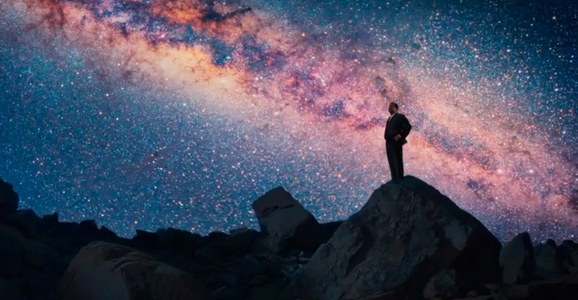Cosmos Wrangles Up The Biggest Global Audience In National Geographic History
This article is more than 2 years old
 If you spend much time perusing the wares here at GFR, you probably already know, or at least guessed, that we were pretty big fans of Neil deGrasse Tyson and Seth McFarlane’s (yes, that Seth McFarlane) updated version of Carl Sagan’s classic science show Cosmos: A Spacetime Odyssey. Surprising that we might be way into a program like this that explores the bigger questions of science and the universe, isn’t it? We also suspect that many of you out there in Internet land enjoyed Cosmos as well, but we aren’t the only ones, as the series drew the biggest worldwide audience the National Geographic Channel has ever wrangled.
If you spend much time perusing the wares here at GFR, you probably already know, or at least guessed, that we were pretty big fans of Neil deGrasse Tyson and Seth McFarlane’s (yes, that Seth McFarlane) updated version of Carl Sagan’s classic science show Cosmos: A Spacetime Odyssey. Surprising that we might be way into a program like this that explores the bigger questions of science and the universe, isn’t it? We also suspect that many of you out there in Internet land enjoyed Cosmos as well, but we aren’t the only ones, as the series drew the biggest worldwide audience the National Geographic Channel has ever wrangled.
Last spring, Fox debuted the revamped series in over 180 countries. In an unusual cross-platform release, Cosmos aired on 90 National Geographic channels, as well as more than 120-Fox-branded stations across the world. If that sounds like a lot, it is. We’re talking about the largest single global TV launch in history. Just in the U.S., on ten outlets, including Fox, National Geographic, FX, FXX, FXM, Fox Sports 1, Fox Sports 2, Nat Geo Wild, Nat Geo Mundo, and Fox Life.
Domestically, 8.5 million viewers tuned in to the premiere, and while those are solid numbers, the National Geographic Channel reports that more than 135 million people tuned in to at least some portion of the 13-episode first season—with 45 million of those being in the U.S. By midseason, Cosmos became the most watched program in the history of the network, eclipsing the previous record holder Brain Games.
 Liz Dolan, the Chief Marketing Officer at Fox International Channels and National Geographic Channels International said, “Cosmos serves as a fantastic benchmark — illustrating the power of a fully integrated strategic vision, awe-inspiring content and the strengths of the Fox and National Geographic brands to create an outstanding viewing experience for audiences that repeats week after week.”
Liz Dolan, the Chief Marketing Officer at Fox International Channels and National Geographic Channels International said, “Cosmos serves as a fantastic benchmark — illustrating the power of a fully integrated strategic vision, awe-inspiring content and the strengths of the Fox and National Geographic brands to create an outstanding viewing experience for audiences that repeats week after week.”
Overall, the numbers in the U.S. were okay, but not stellar, though we still have hope that we will get a second season of Cosmos. Especially considering the big worldwide ratings, this seems like a possibility, but in a society where science is far too often equated is some sort of mystical misinformation or superstition, the fact that we got one season seems like a minor miracle.
This last week, when the nominations for the 66th annual Primetime Emmys were announced, Cosmos walked away with a ton of recognition. The show’s 12 nominations tied it with acclaimed narrative series like HBO’s vaunted True Detective and Netflix’s Orange is the New Black. Hopefully between this critical recognition and worldwide viewer base, we’ll get to go on more Neil deGrasse Tyson-guided adventures through the galaxy. We can only hope.












